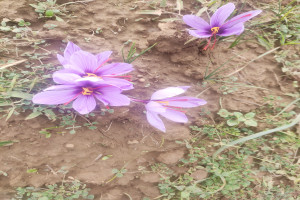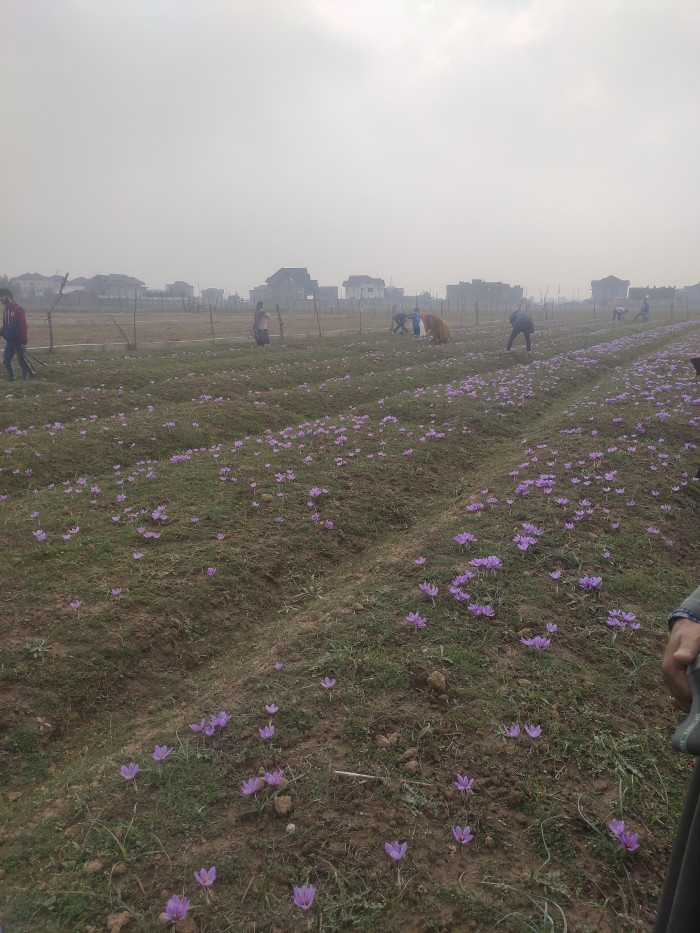
 By Rameez Makhdoomi*
By Rameez Makhdoomi*
Srinagar: Kashmir is globally acclaimed for its natural beauty and diverse resources in shape of special flora and fauna. It is also a proud fact for the people in Kashmir that the valley of Kashmir is also known for growing the most rare and costliest spices of the world. The precious and valuable spice-Saffron certainly tops the list. Saffron is native to Southwest Asia’s saffron fields. Kashmir is among the only three places on the planet besides Spain and Iran, growing this world’s most expensive spice by weight. It is a spice derived from the flower of the saffron crocus (Crocus sativus), a species of crocus in the Iridaceae, used in cooking as a seasoning and colouring agent.
This time – late October to early weeks of November is the saffron harvesting season in saffron fields of Pampore in Kashmir but many ugly facets emerging in past few decades have adversely impacted saffron.

With wild constructions going on in the saffron town of Pampore, the saffron productivity of Kashmir has been declining constantly and there is a great threat that in future years the valley might altogether lose this precious spice.
Iran is widely taking up the saffron market of world leaving Kashmir far behind. Rehan Hussain Lone, a saffron farmer and renowned businessman of saffron said: “Iran has moved much way ahead in terms of quantity, field produce and overall market.”
The per hectare production of Iran at present has moved more than ten times as compared to Kashmir. While Iran has introduced modern machinery for picking up the saffron flowers and even drying and processing, the Kashmir valley is still dependent on traditional methods .
According to Rehan, the demand of Saffron in India ranging from use in temples to cosmetics is quite high and Kashmir can hardly meet five per cent of the need whereas Iran produces more than ninety percent of the world saffron.”
The only breather this year has been that timely rainfall this year has ensured a good saffron crop. Ghulam Hussain Lone, a saffron farmer, however, states that seed laying process under National Saffron Mission has not paid off as most of corm has got destroyed. He believes that more comprehensive soil testing is the way to increase the saffron production in Kashmir.
*Senior journalist





